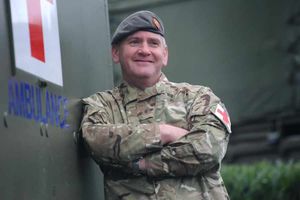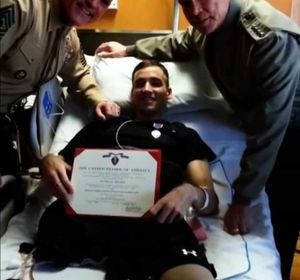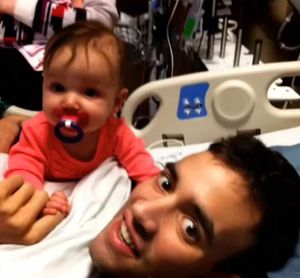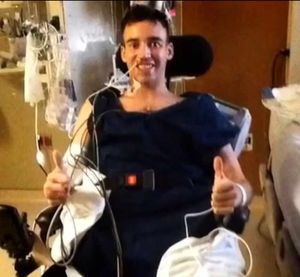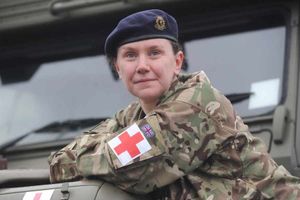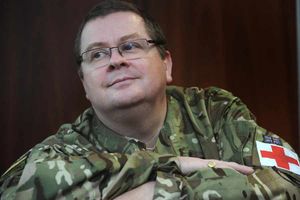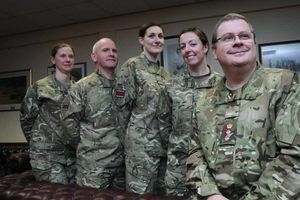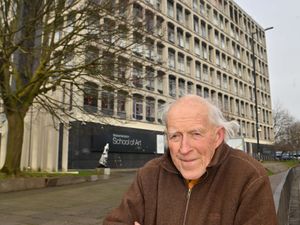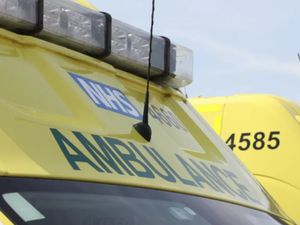Pride of West Midlands army lifesavers
Medics from a West Midland-based Army Reserve unit spoke today of their pride after saving the lives of soldiers during a tour of duty in Afghanistan.
The 34-strong team of army reserve doctors and nurses from 202 Field Hospital that includes doctors and nurses from hospitals in the West Midlands, Staffordshire and Shropshire have just returned from three and a half months working at the hospital in trouble torn Helmand Province's Camp Bastion - regarded as the best trauma centre in the world.
Among the casualties treated by them and other colleagues was Marine Sgt Aaron Alonso who lost both legs in a bomb blast and needed so much blood that more had to be donated by hospital staff had to ensure there was enough to keep him alive. They were later sent a photo of him being awarded his Purple Heart.
Sgt Alonso has a young daughter and is now back in the US receiving treatment at the National Military Medical Centre in Maryland. His sister Kimberly posted on an American website: "With many operations and a long recovery ahead, there will be difficult days too. Sometimes you feel hurt, but what stays constant is the gratitude that we feel to have him and the faith that everything will work out in time."
Wife Jessica this week posted a video highlighting his recovery on the GiveForward.com page used to raise money for the family's expenses. She explained in a post accompanying the video: "I had some free time this weekend and decided to put together a short video of Aaron's progress thus far. He never ceases to amaze me with his strength, determination and courage."
Marine Sgt Alonso was deployed to Afghanistan a week after his wife gave birth to their daughter, Riley. Since he was wounded, more than $96,000 has been raised by people in an around his home town of Jefferson, Maryland to help the family.
Captain Steve Hill, a 47-year-old father of two from Bradmore, Wolverhampton employed as a nurse practitioner in the city's Phoenix Walk In Centre who worked in the emergency department of the hospital at Camp Bastion recalled: "There was a queue of staff waiting to give blood while he was still in theatre. It was nice to see the photo of the soldier so soon after he had received such devastating injuries. I do not like to look at individual cases but that was not unique. We dealt with a lot of trauma patients in the early part of this tour, many of whom were members of the Afghan National Security Forces. I was really proud to be part of a service that can consistently deliver that level of care at such a successful hospital."
Major Jane Phillips, a 37-year-old Birmingham University lecturer from Worfield, near Wolverhampton, who joined the TA 13 years ago and was in charge of the communication and administration hub at the hospital, commented: "When I saw the pictre of the American soldier receiving his Purple Heart, I felt really proud of the team that had delivered such outstanding care and treatment."
202 Commanding Officer, Colonel Glynn Evans, a 47-year-old consultant anaesthetist and father of three from Tamworth, is believed to be the first NHS hospital consultant to command the hospital at Camp Bastion, the main British base in Afghanistan. It has 195 medical staff from the UK, USA, Denmark and Estonia. He said: "I had been training for the task for years and so it was not a great surprise but every day brought different challenges."
An early test came when the heating broke down in part of the hospital during an unusually cold spell of weather sending the temperature in the operating theatre plunging to a potentially dangerous low. Fortunately the RAF came to the rescue with a caravan sized piece of equipment normally used to heat and defrost aircraft wings. Heat was funnelled through pipes into the emergency department and operating theatres until the fault was mended several hours later.
Major Phillips added: "It was very challenging and busy at the outset. We were fully operational straight away. There was a high level of admissions for the first 10 days but we managed to deal to a very high standard with everything. There was a massive change in tempo by the time we left. We were getting less admissions in a month than we had in those first ten days."
202 Field Hospital also helped develop and extend the capability of the hospital at Camp Shorobak next door to Bastion. It is staffed and being used by Afghans and will replace the current hospital at Bastion that is removed as the last British combat troops leave Afghanistan at the end of the year. 202 was the first Army Reserve field hospital into the action when Iraq was invaded and were the last out as British combat troops leave Afghanistan. Col Evans concluded: "That is an interesting bit of top and tailing."
